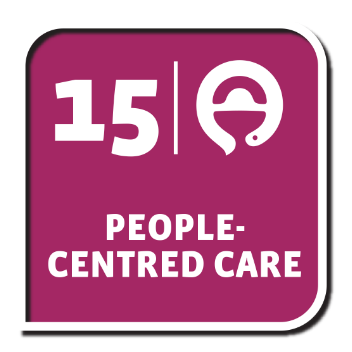According to the WHO, more than 41 million people die annually from non-communicable diseases (NCDs), accounting for 71% of deaths worldwide, 15 million of which occur between the ages of 30 and 69. NCDs represent a major challenge to the health systems of all countries, regardless of their wealth or state of development, with 77% of all NCD deaths occurring in low- and middle-income countries.
The prevention and management of NCDs require interventions that must be effective, cost-effective, affordable and feasible, and should be included in national policies and supported by appropriate indicators of NCDs and their risk factors. Such interventions should promote health equity and be designed to target populations and individuals to improve health outcomes.
The WHO identified five priority non-communicable diseases: diabetes, mental health, chronic respiratory conditions, cancer and cardiovascular diseases.
Due to their expertise, accessibility and frequent interactions with patients and community members, pharmacists are uniquely positioned to play a crucial role in the prevention, screening, management and treatment optimisation of NCDs. These interventions, in close cooperation with other healthcare professionals, deliver value to patients and contribute to making health systems more efficient, resilient and sustainable.
For many years, FIP has been highlighting these important roles by pharmacists and supporting its member organisations to advocate and develop professional services that address the burden of NCDs in their countries. This has been done by producing reference papers, policy and position statements, toolkits, survey reports and events. These publications provide evidence on the role of pharmacists in tackling NCDs and highlight evidence and best practices from around the world.
This role is well described in FIP Development Goal 15, People-centred Care.







Strategies in place to develop pharmaceutical education and the workforce to support the delivery of people-centred care in practice.
Collaborative interprofessional strategies and people-centred professional services to support the prevention, screening, clinical management and therapeutic optimisation of non-communicable diseases (NCDs) and long-terms conditions (LTCs) including cardiovascular diseases, chronic respiratory conditions (such as asthma and chronic obstructive pulmonary disease, COPD), diabetes, cancer, mental health conditions, dermatological conditions and others.
Capacity to monitor and understand health-related characteristics leading to innovative personalized approaches for improved people-centred care.
This microsite brings together these resources for you to use and bring to life in pharmacy practice, pharmaceutical education and the pharmaceutical sciences.